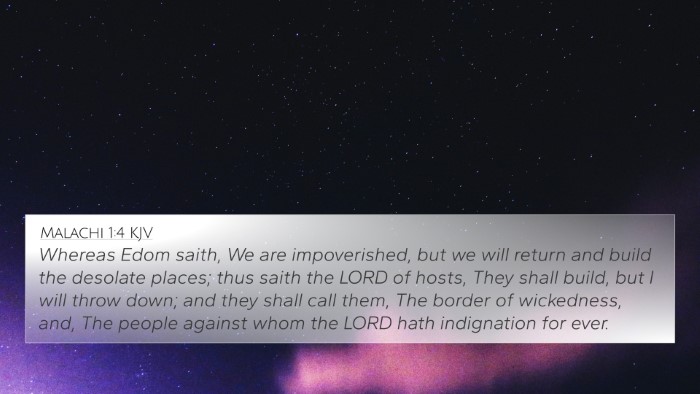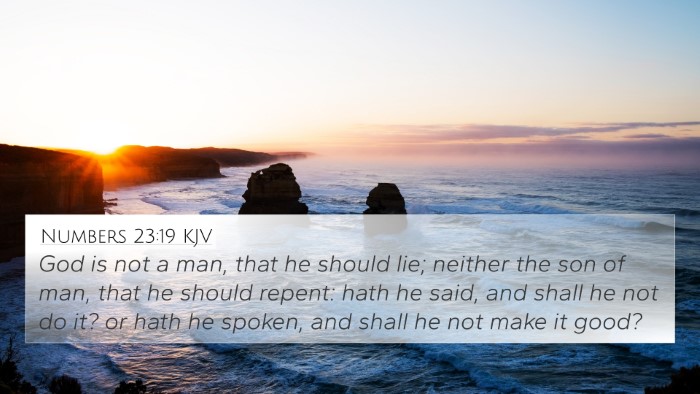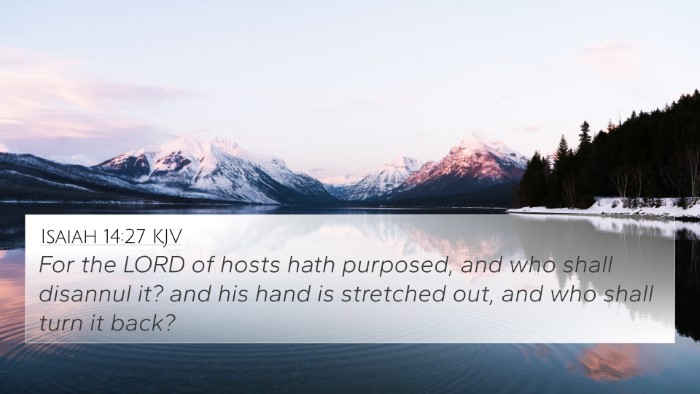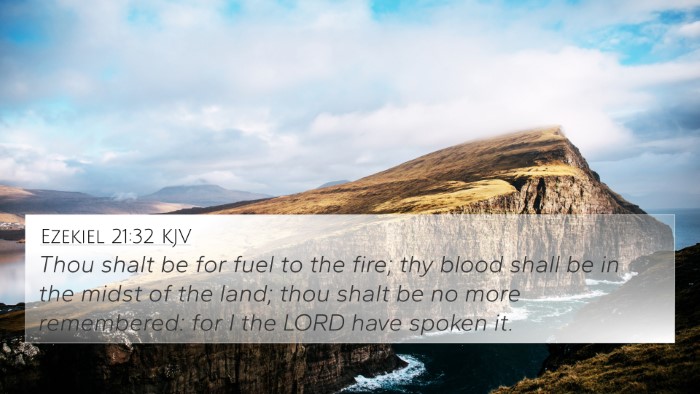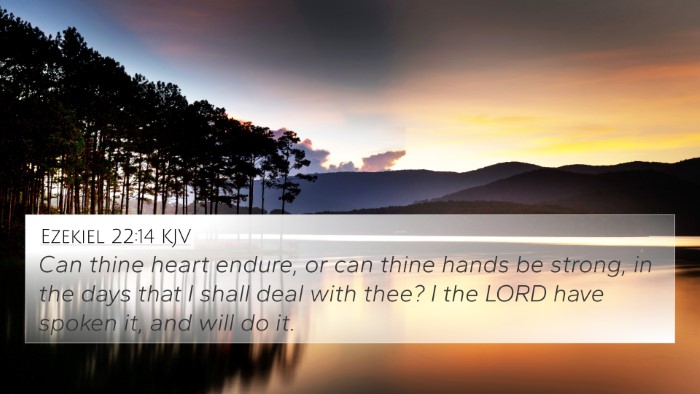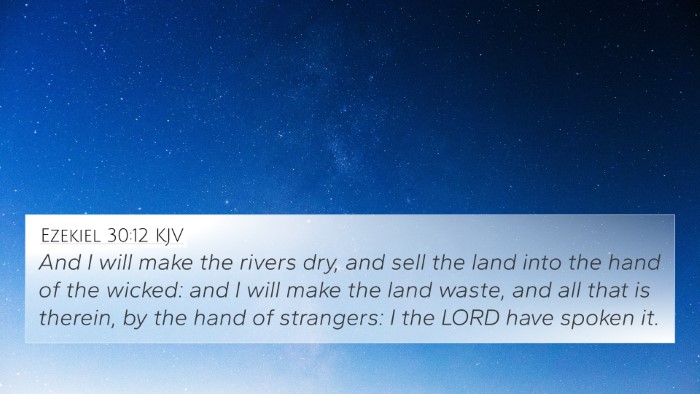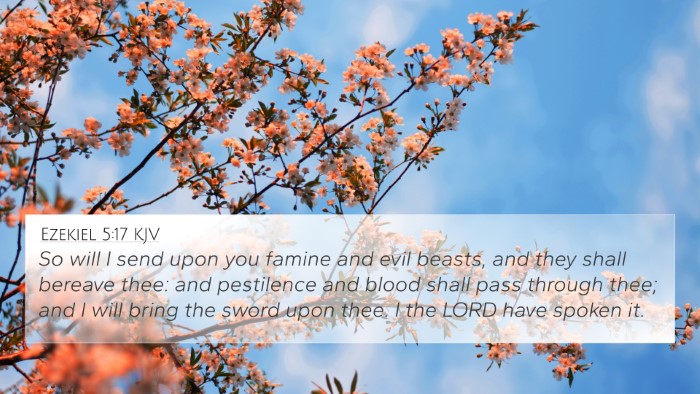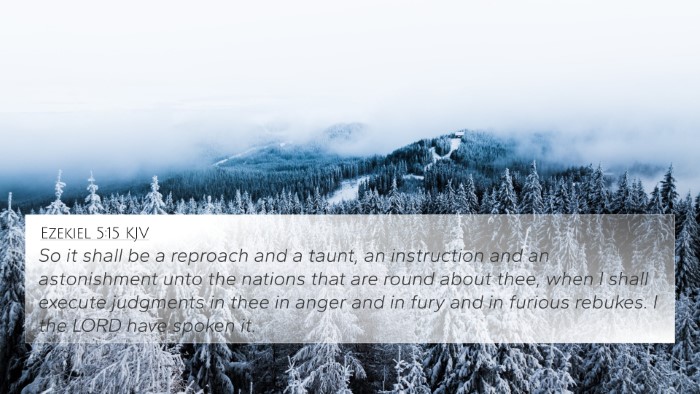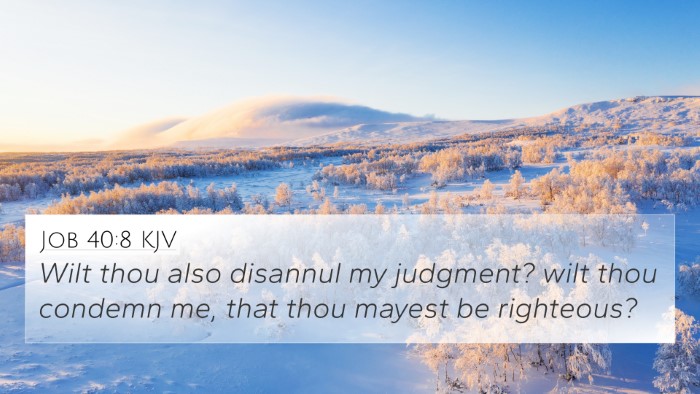Ezekiel 26:14 - Summary and Interpretation
Verse: "And I will make thee like the top of a rock: thou shalt be a place to spread nets upon; thou shalt be built no more: for I the Lord have spoken it, saith the Lord God." (Ezekiel 26:14 KJV)
Contextual Overview
This verse is part of a prophetic message delivered by the prophet Ezekiel to the city of Tyre, which was known for its wealth, commerce, and strength. The verse symbolizes destruction and desolation, indicating that Tyre would be brought to ruin and left unable to support life or prosperity.
Meaning and Insights
- Metaphor of Rock: The imagery of Tyre being like "the top of a rock" suggests that it will become uninhabitable and desolate, a stark contrast from its former glory as a thriving city.
- Spreading Nets: The phrase "place to spread nets upon" implies a barren wasteland where fishermen might come to cast their nets, symbolizing a shift from a center of commerce to a place of emptiness.
- Divine Judgment: The declaration "for I the Lord have spoken it" emphasizes that this destruction is an act of divine judgment, affirming God's sovereignty and authority over nations and cities.
Commentary Insights
Matthew Henry: In his exposition, Henry remarks that the desolation of Tyre serves as a stark reminder of God’s plans against pride and arrogance. Tyre’s fall illustrates the futility of reliance on worldly power when opposed by divine will.
Albert Barnes: Barnes elaborates on the implications of Tyre’s complete devastation. He highlights that the city, once famed for its beauty and strength, would transition into a desolate stretch of land, signifying the transformation from riches to ruin.
Adam Clarke: Clarke notes that this symbol of desolation adds weight to the prophetic narrative surrounding Tyre, presenting it as an example in the annals of scripture where human strength crumbles under the divine decree.
Bible Verse Cross References
- Ezekiel 27:32-36: Describes the lamentation over Tyre, further portraying its fate.
- Isaiah 23:1: A prophecy against Tyre, establishing themes of judgment and desolation.
- Jeremiah 25:22: Mention of Tyre as part of God's judgment against surrounding nations.
- Ezekiel 28:12-19: Highlights the pride of the king of Tyre, elaborating on his inevitable downfall.
- Amos 1:9: The prophecy against Tyre emphasizes betrayal and subsequent judgment.
- Zechariah 9:3: Discusses the destruction of Tyre's strongholds, reinforcing Ezekiel's message.
- Revelation 18:17: The fall of Babylon, drawing parallels to the destruction wrought upon Tyre.
Thematic Connections and Comparative Analysis
The passage in Ezekiel shares thematic elements with various books throughout the Bible. It speaks to the overarching theme of divine retribution against pride and immorality, a narrative found within the writings of both the Old and New Testaments.
Similar Verses and Their Insights
- Obadiah 1:3-4: Discusses pride before destruction, correlating with Tyre's downfall.
- James 4:6: “God resists the proud, but gives grace to the humble,” serves as a New Testament parallel applying to those who exemplify pride.
- 1 Peter 5:5: Encourages humility, echoing the sentiment that pride leads to downfall.
Tools for Bible Cross-Referencing
To explore deeper connections within scripture, various tools and resources can assist in cross-referencing:
- Bible concordance: A vital tool for identifying key terms and their occurrences across the biblical text.
- Bible cross-reference guide: Helps navigate connections and themes among diverse passages.
- Cross-reference Bible study: Engages readers in a comprehensive examination of scripture.
Conclusion
In analyzing Ezekiel 26:14, one gains insight not only into the specific fate of Tyre but also into broader biblical themes inherent in the relationship between human pride and divine judgment. This verse becomes a part of a larger dialogue within scripture, inviting readers to reflect on the seriousness of God's proclamations and the fate that befalls nations that turn from His ways.
Understanding passages like this within the framework of cross-referencing enriches one's study of the Bible. It fosters a deeper appreciation for the interconnectedness of biblical teachings and the prophetic voice that speaks through the ages.



